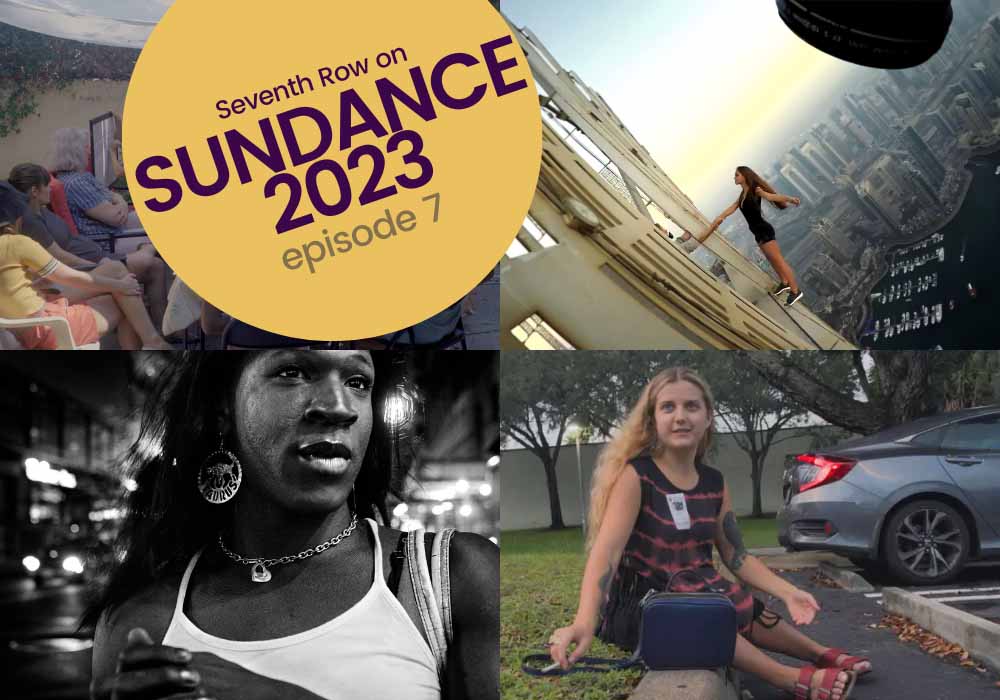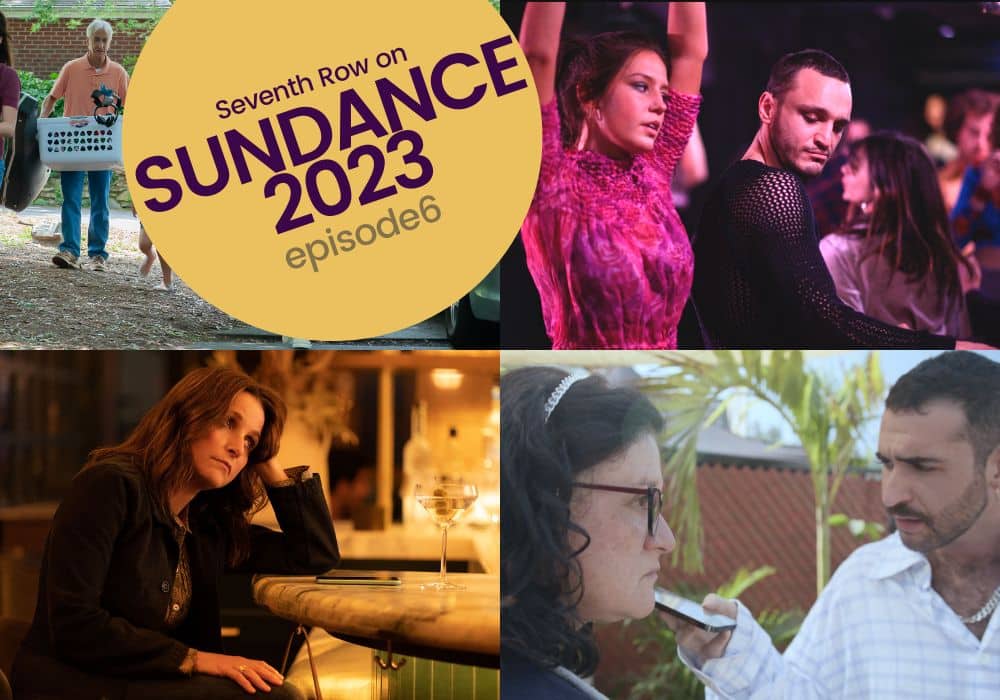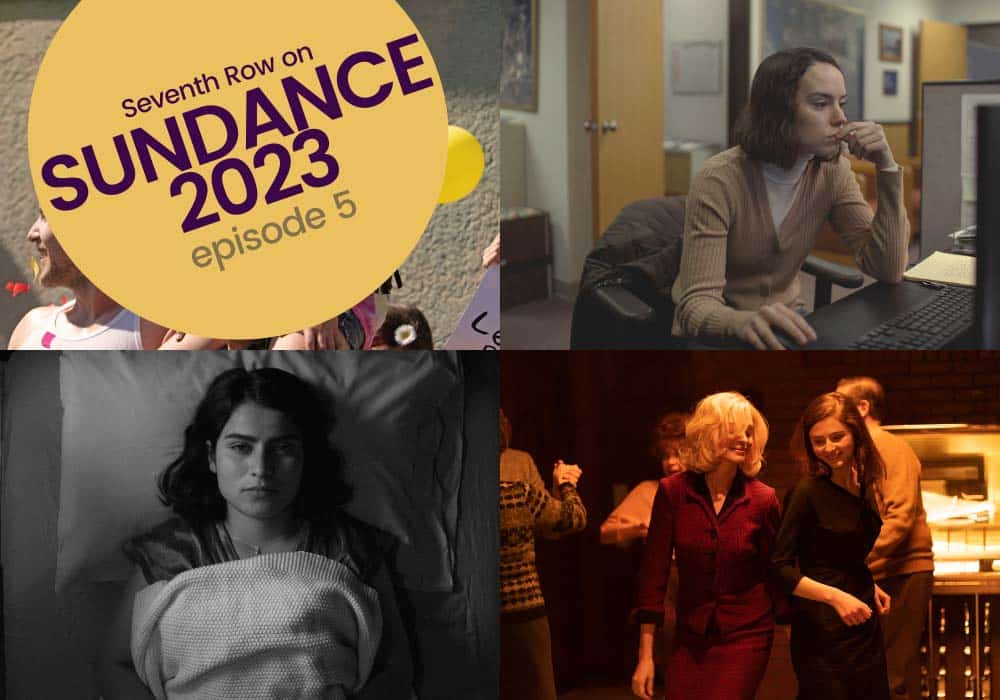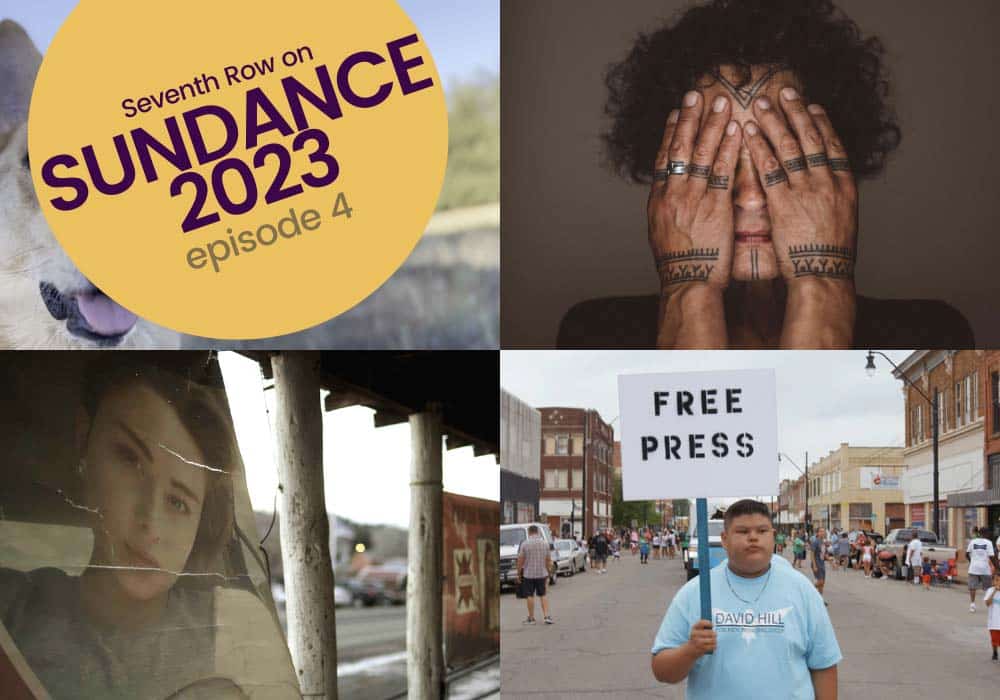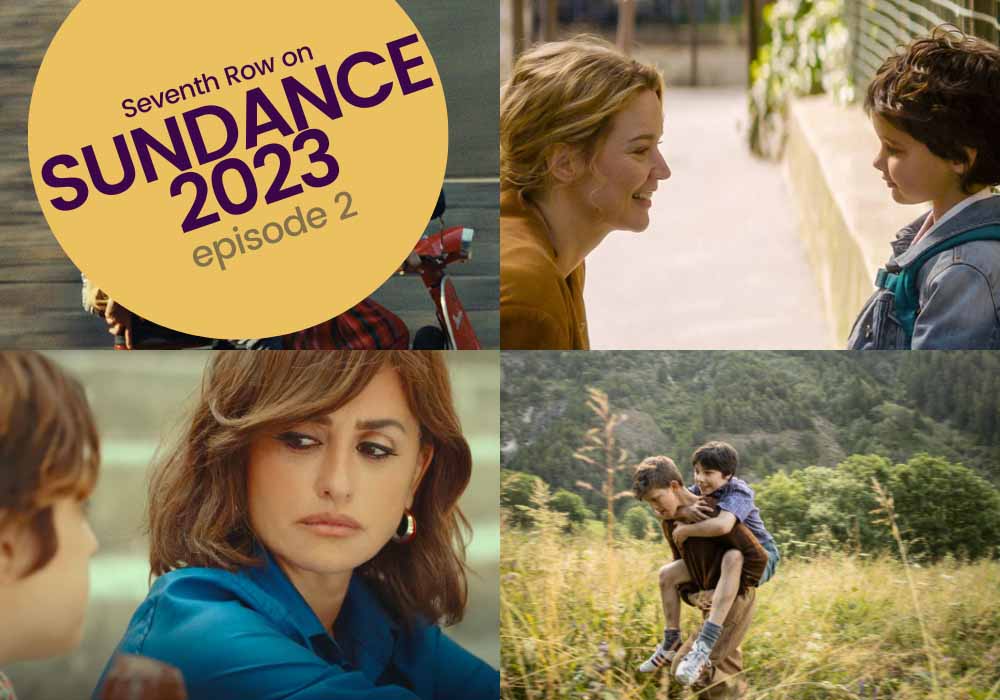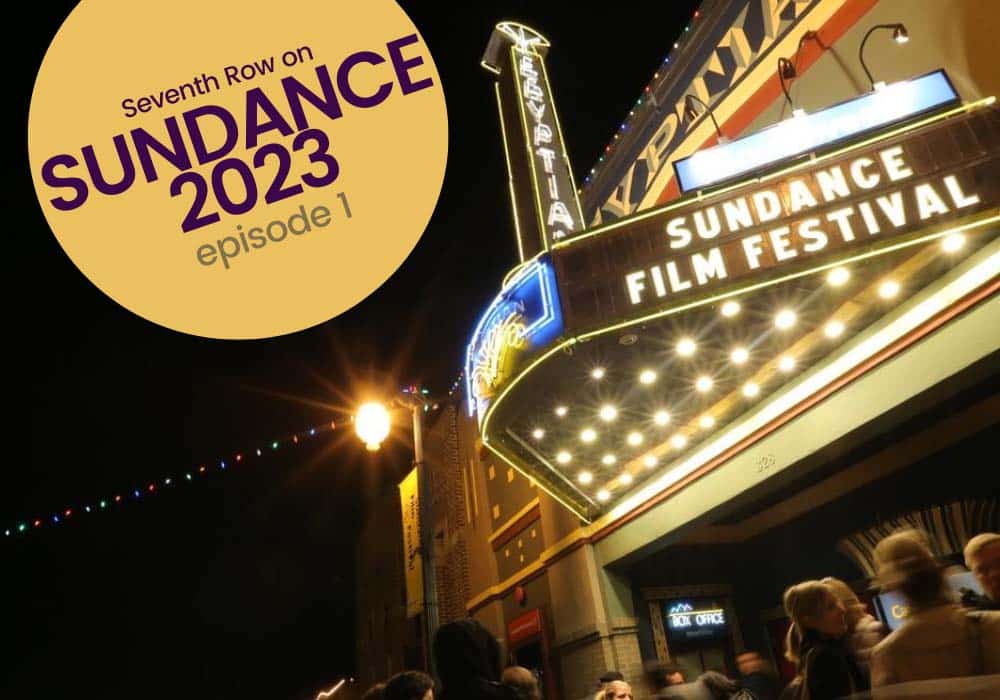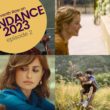In the third episode of the Sundance 2023 podcast season, we discuss highlights of the festival so far, including the films Slow, Fancy Dance, Scrapper, A Still Small Voice, and half of the World Dramatic Competition.
Don’t miss a single episode. Subscribe to the podcast now.
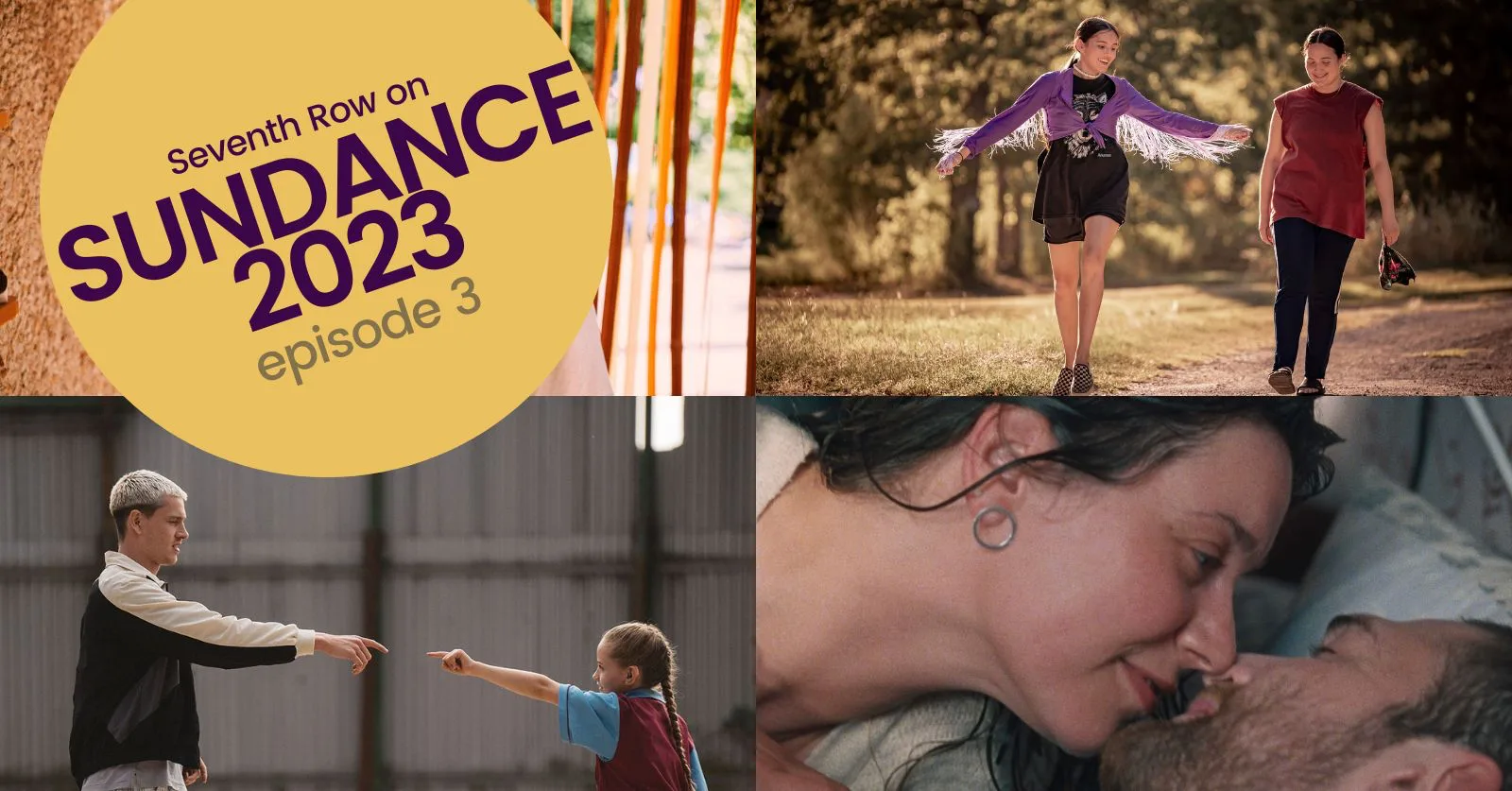
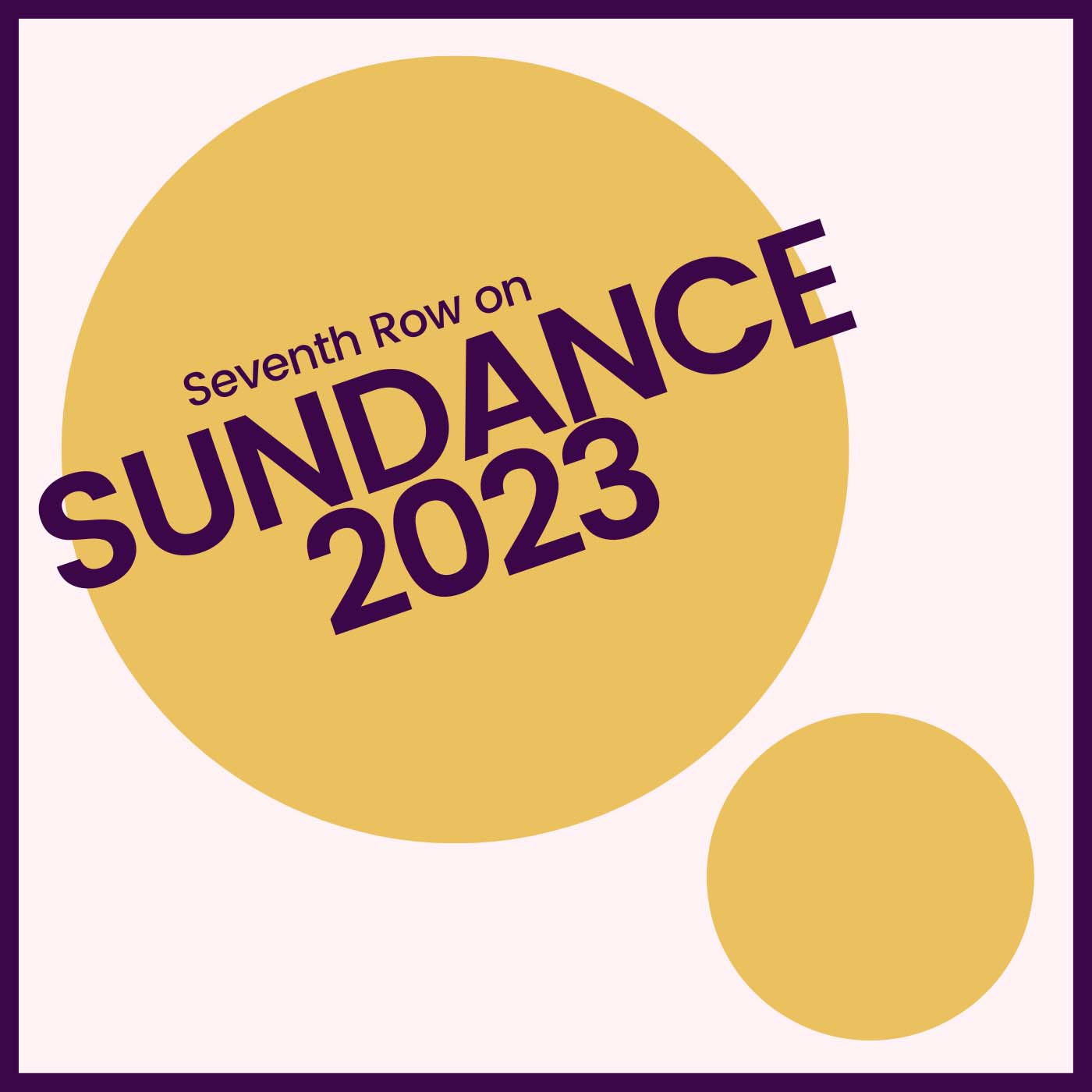
Listen to the whole Sundance 2023 season
Today is the third of many episodes of the 2023 Sundance season of the Seventh Row podcast.
Sundance 2023 runs from January 19-28, and we’ll be covering this year’s festival in a new podcast season about the films this year and how the programming fits into the festival’s history.
Listen to all the episodes to discover the year’s best and worst films, and how this year’s program jives with past festivals.
About this episode: Slow, Fancy Dance, Scrapper and more Sundance film highlights
- 00:00 Introduction
- 09:10 Films from the Sundance World Dramatic Competition so far: Slow, Heroic, Scrapper, When It Melts, Mamacruz, Girl
- 53:23 Fancy Dance starring Lily Gladstone
- 1:18:35 A Still Small Voice
- 1:24:22 Sundance bingo
The World Dramatic Competition So Far
In our first dispatch on the world premieres at the 2023 Sundance Film Festival, we delve into the under-discussed and oft-ignored World Dramatic Competition. We go deep on our favourite World Dramatic Competition title so far: Slow (dir. Marija Kavtaradze), Scrapper (dir. Charlotte Regan), and When It Melts (dir. Veerle Baetens).
Slow is a Lithuanian film about a dancer navigating a new relationship with her asexual partner. The film Scrapper is about a working class twelve-year-old girl in Dagenham who recently lost her mother and reconnects with her estranged father (an excellent Harris Dickinson). When It Melts is about a traumatic childhood event in a twelve-year-old girl’s life that has devastating consequences for her as an adult. We also discuss Heroic (dir. David Zonana, Workforce) and Mamacruz (dir. Patricia Ortega), which also screened in the World Dramatic Competition.
In past years, we’ve found some of our favourite films at Sundance in this section, including The Dog Who Wouldn’t Be Quiet (2021), Charter (2020), The Souvenir (2020), God’s Own Country (2017), Mammal (2016), Sand Storm (2016), and Homesick (2015). Unfortunately, these films also have the tendency to disappear so we wanted to throw a spotlight on the competition this year (as we do every year!), to draw attention to films you’ll want to watch out for at local film festivals, which may be your only opportunity to watch them, or could get buried on VOD in the future. And hopefully, we can help get these films noticed and distributed!
Early US highlights
Finally, we turn to two early US highlights. First, Erica Tremblay’s Fancy Dance in the US Dramatic Competition about an Indigenous woman (Lily Gladstone) searching for her sister who recently went missing (MMIWG) while suddenly finding herself the sole guardian for her 12-year-old niece. Second, Orla highlights the documentary A Still Small Voice (dir. Luke Lorentzen), about the toll on a hospital chaplain of constantly extending empathy to others.
Sundance Bingo
Finally, in our cheeky ongoing segment, we take stock of how we’re doing on our Sundance Bingo card. The festival’s programming can be a bit predictable: they have certain slots to fill and they make sure they fill them. Sundance Bingo is a fun way to see just if the programming is as predictable as we expected and how. Download the Sundance 2023 bingo card to follow along at home.
Never miss an episode again. Become a member.
The Seventh Row Podcast spotlights under-the-radar, female-directed, and foreign films. All of our episodes are carefully curated. Indeed, we only discuss films we think are really worth your time and deserve in-depth critical analysis.
Our episodes that are more than six months old are only available to members. In addition, many of our new episodes are for members only.
For exclusive access to all of our episodes, including all of our in-between season episodes, become a member.
How to follow our Sundance 2023 coverage
Subscribe to our newsletter for updates on the 2023 Sundance podcast season and coverage on the website.
Follow Seventh Row on Twitter and Instagram @SeventhRow; Alex Heeney on Twitter and Instagram @bwestcineaste; and Orla Smith on Twitter and Instagram.
Show Notes on E3 of the Sundance 2023 podcast season: Fancy Dance, Slow, Scrapper, A Still Small Voice and more
Links to articles/books related to the 2023 selections
- Get our book on creative nonfiction film, Subjective Realities, featuring interviews with Tabitha Jackson, Penny Lane, Robert Greene, Kirsten Johnson, Joe Bini, Pacho Velez, and more.
- Read our coverage of Hala and Crystal Swan, which were both shot by cinematographer Carolina Costa (who did Fancy Dance).
- Listen to our Penny Lane and Carol Nguyen interview (which also exists in Subjective Realities) in podcast form where they discuss the genre “creative nonfiction” and how why Lane coined it to describe her films.
- Read about why we named Harris Dickinson and Lily Gladstone as two of the fifty screen stars of tomorrow in 2021. Dickinson stars in the World Dramatic Competition film Scrapper at Sundance 2023. Gladstone stars in the US Dramatic Competition film Fancy Dance.
- Watch Lockdown Film School with Lily Gladstone. Gladstone has a new film, Fancy Dance, at Sundance 2023, and we’re excited to see it.
- Read an excerpt from our interview with Lily Gladstone which touches on her love of linguistics from the ebook Roads to nowhere: Kelly Reichardt’s broken American Dreams. Gladstone talks about learning different languages, which is particularly relevant to Fancy Dance in which she speaks Cherokee.
- Read our interview with writer-director Sonia Boileau on her Missing and Murdered Indigenous Women and Girls (MMIWG) drama Rustic Oracle. Fancy Dance, one of our festival favourites thus far, also addresses MMIWG.
- Read Orla’s Quick Thoughts review on last year’s Girl Picture, in which one third of the central trio of characters questions whether she’s asexual. This was the highlight of the 2022 World Dramatic Competition. This year’s Slow also features an asexual character.
- Download the Sundance 2023 bingo card to follow along at home.
Related episodes to Sundance 2023 E3: Slow, Fancy Dance, Scrapper, A Still Small Voice, and more
All of our podcasts that are more than six months old are only available to members. We also regularly release members only bonus episodes. Many of the episodes listed here are now only available to members (Members Only).
Discover all of our past podcast episodes on films that screened at Sundance.
Listen to all the related episodes. Become a member.
For exclusive access to all of our episodes, including all of our in-between season episodes:
- Ep. 116: Virtual film festivals: Taking stock of their past, present, and future (Members Only): Sundance is one of the only festivals in 2023 to continue to offer a virtual component. On this episode from 2021, we talked about the advent of virtual film festivals, why we like them, why they may struggle, and what we’d like to see in the future.
- Ep. 123: Sundance 2022: Creative nonfiction (FREE): In this episode, we talk about Sundance’s history of programming creative nonfiction films and how this has changed in the last decade. We’ll be on the lookout for exciting new creative nonfiction films at the festival this year. Our early favourite is A Still Small Voice.
- Bonus Episode 23: Sundance 2022: Fiction Films (Members Only): At the end of Sundance 2022, we reflect on the highs, lows, discoveries, and disappointments among the fiction films at the festival, including Girl Picture, the best film in the 2022 World Dramatic Competition.
- Ep. 63: Indigenous YA, part 2 (Members Only): In this episode, we discuss a fantastic films about MMIWG that precedes Fancy Dance, Rustic Oracle, a film made in Canada. Rustic Oracle would make for a great double feature with Fancy Dance.
- Ep. 53: First Stripes and Boys State (Members Only): We go deep on the fantastic documentary First Stripes, which follows new recruits through basic training in the Canadian military.
Catch up with the rest of the Sundance 2023 podcast season
Listen to all the related episodes. Become a member.
For exclusive access to all of our episodes, including all of our in-between season episodes:
Speakers on this episode
Host Alex Heeney is the Editor-in-Chief of Seventh Row. Find her on Twitter @bwestcineaste.
Host Orla Smith is the Executive Editor of Seventh Row. Find her on Instagram @orla_p_smith.
Episode transcript
The transcript for the free excerpt of this episode was AI-generated by Otter.ai.
[fusebox_transcript]
